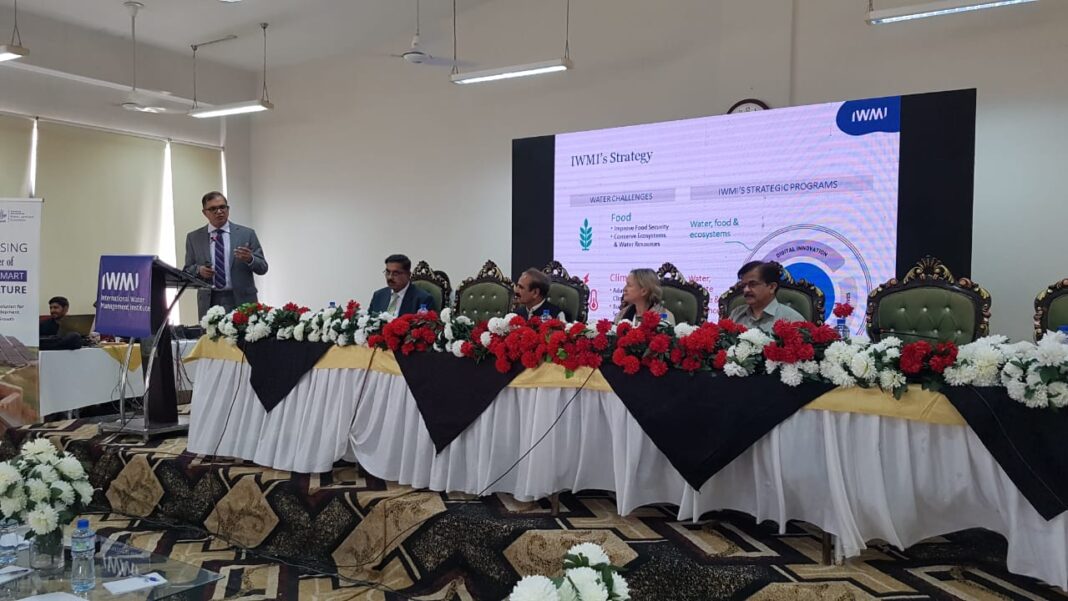Islamabad: AGAHI on the World Telecommunication and Information Society Day launches its baseline study to understand the perception of the audience in determining the level of trust in news, and explore trends that are potentially affecting information consumer habits in the digital age. The study would be published later this year. During online interactive sessions throughout the year the importance of trust in the internet and other information communication technologies in bringing together societies and economies was discussed. The World Telecommunication and Information Society Day serves to show the role and the importance of the internet and other ICTs when it comes to bridging the digital divide. The 17th of May marks the anniversary of the signing of the first International Telegraph Convention, as well as the creation of the International Telecommunication Union (ITU). AGAHI undertakes the perception study which will examine the state of public trust in media and how journalism and media is received in the social sphere. The objective of this study is to identify and address the problems regarding trust that the public has with journalism in Pakistan today, as well as discussing all the measures taken by other countries and organizations to put trust as one of the most fundamental pillars for the dissemination of news content. “Seeing as to how trust in journalism has been on a steady decline over the past few years, it’s just as important to understand emerging trends that are shaping information consumption patterns. A society that is inclusive and an economy which is people-centric is important for the digital transformation of any sector or a country” said Puruesh Chaudhary, Founder and President AGAHI; Lead, Kalām Centre for Trusting Societies.
Generally, trust in media, particularly in journalism, has been experiencing a gradual and steady decline over the past few years. Though this decline cannot solely be attributed to just one cause, one of the most prominent reasons is the rapid spreading of misinformation and disinformation. These information disorders have led to trust not only declining in terms of the sources but also down to the news content itself, leading for the masses to have their own perceptions of whatever news content is being shared. “Trust is one of the most important parameters that has to be met when it comes to journalism. The objectives of the baseline study includes understanding the news consumption patterns, investigating the level of trust in news content and audience’s perception regarding the level of trust in journalism and differentiating that level on the basis of sources of information (Print, Broadcast and Digital) said Dr Najma Sadiq, Head of Department for Mass Communication at that National University of Sciences and Technology.
Many countries in the world are now viewing trust as an essential part of the journalistic process, both in terms of the sources used as well as the content that is put out. Many international organizations such as the Reporters Without Borders (RSF) have undertaken initiatives, such as the Journalism Trust Initiative (JTI), in order to encourage a healthier information space.“Public trust in journalism is vital. In the digital age, journalists and media organizations are under more pressure than ever to maintain credibility. If the public feels the information they receive is untrustworthy or dishonest, they will opt for alternative and unreliable sources. Therefore, upholding and maintaining trust in journalism should be a top priority” said Osama bin Javaid, Senior Correspondent, Aljazeera Media Network; Mentor, Kalām Centre for Trusting Societies.
Pakistan, however, has very glaring examples of the spreading of digital misinformation, which has been that way for a long time. In an effort to change this, there have been training sessions held over the past few years for journalists that focused on misinformation and disinformation and their threat to the cohesion of society but, unfortunately, they received very little media attention. There have also been many private news outlets that have faced serious credibility issues with the public. In 2017, one of the surveys conducted in Pakistan spoke about how many respondents were left dissatisfied with the news content that was shared on social media as it was untrustworthy and unreliable. These causes were noted as being very detrimental to the state of journalism in the country. “Journalism as a profession must have public trust. For that to happen media practitioners must remove any kind of biases [when reporting], disinformation and misinformation when reporting and disseminating information to build public trust in news sources” said Razeshta Sethna, Senior Journalist and Researcher; Mentor, Kalām Centre for Trusting Societies.
Until now most studies have been conducted in determining the lack of trust in media outlets, channels, and sources. There is very little research-focus on exploring the audience’s perception, understanding and viewpoint. To fill this gap in literature the study will be exploring the perception of people revolving around the trust in journalism. By taking the example of Pakistan’s news media, the present research will explore the extent to which the people in Pakistan trust the news have confidence in journalism and what they perceive about the news credibility.
AGAHI Enterprise Private Limited is a professional services firm working across issues, sectors and industries. We advise leaders on contextual, knowledge-based communication focusing on cross-cultural intelligence tools for building networks of trust and meaningful alliances. Our expertise in concept development, content intelligence, creative thinking and growth opportunities help us communicate organizational values and beliefs most effectively.






